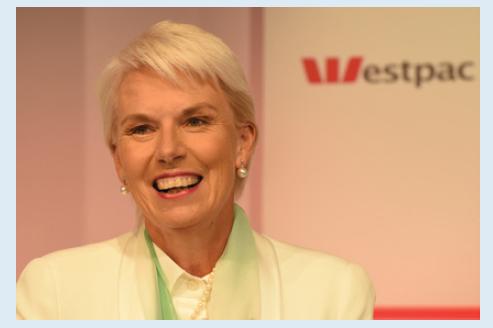Gail Kellys departure as Westpac chief executive was a real and symbolic loss for women, many of
Question:
Gail Kelly’s departure as Westpac chief executive was a real and symbolic loss for women, many of whom saw her as a role model. Women in Australia now make up just 3 per cent of CEO roles in the top 200 companies. It is unlikely this will change any time soon as the pipeline of women coming up the ranks, in terms of numbers, does not look promising. Kelly is unique as she is seen as a woman who managed to ‘have it all’. She was chief executive of one of the Big Four banks while being a mother of four children. This combination is a rarity as a woman’s rise to the top often occurs at the expense of having a family.
She is therefore an important role model for many women facing a societal climate that does not value female leadership. A report by Randstad found more than one in four Australian employees believed their employer would choose a male over a female candidate of equal merit, regardless of the gender ratio in their organisation. The findings support the view that people think men make better leaders than women.
Study after study finds organisations do better on both financial and non‐financial measures when women are included in executive and board positions. This includes better returns for investors. Yet women are still seen as outsiders for senior leadership roles. Sadly, many women internalise societal discrimination and see themselves as imposters. The imposter syndrome is hard to break when there are so few female role models and female competence is judged by higher, harder and shifting standards. Society all too often waits for a woman in leadership to fail as proof that women are incompetent, inept or uncommitted.
Most women who make it to the top do so by tolerating male‐dominated cultures and accommodating the dominant style. This means neither setting the cultural agenda nor radically changing the work environment. For women at the top, family and work remain incongruent. The rhetoric of familyfriendly workplaces remains just rhetoric. A landmark study by the Human Rights Commission found 49 per cent of pregnant women and working mothers experienced discrimination both in the corporate world and the public service.
QUESTION
Many suggest that the best way to ensure gender equality in business is to introduce a quota for the number of women on board. Do you agree? List some strengths and limitations of this approach.
Step by Step Answer:

Management
ISBN: 9780730329534
6th Asia Pacific Edition
Authors: Schermerhorn, John, Davidson, Paul, Factor, Aharon, Woods, Peter, Simon, Alan, McBarron, Ellen





